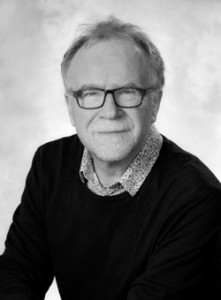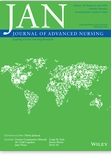Professor Stephen Billett is a long-term distinguished member and mentor for many researchers within GIER. Stephen’s life work has been founded upon ideas about learning and knowledge acquired through practice and what constitutes an educative experience.
After a career in garment manufacturing, he has worked as a vocational educator, educational administrator, teacher educator, professional development practitioner and policy developer in the Australian vocational education system and as a teacher and researcher at Griffith University.
 Stephen’s work intersects theory and practice, and he draws upon his breadth of workplace experiences, applying theory to find ways to help people learn and work better.
Stephen’s work intersects theory and practice, and he draws upon his breadth of workplace experiences, applying theory to find ways to help people learn and work better.
On his working history, Stephen says:
“As a young man in Britain upon leaving college, where I had excelled educationally, when I went into the workplace it was as if I knew nothing. Everything I’d learnt didn’t apply to the tasks I confronted. It was an eviscerating experience at the time. Some decades later, it was from these experiences and learning how to become a competent worker that I wanted to understand more about how people learn in their work, just as I had done. This was the basis for my PHD study in the 1990s.”
Stephen is kept interested and motivated by building on his PhD focus on “what constitutes situated cognition.” That is, contributions to people’s thinking and acting that arises from the social circumstances in which they are engaged and the culturally-derived derived practice they perform.
On defining moments in his career, Stephen says:
“I had a role in the public service that saw me engage with a whole range of enterprises around Queensland. I came across different kinds of workers doing ‘demanding work’ and had learnt those skills on the job. There had been little to no vocational training. One day, when visiting a large sugar mill in North Queensland (a site to be seen if there is one), I realised that all the knowledge required to run this manufacturing plant existed solely in the small community that surrounded it. This got me thinking about my own experiences and how I came learn my occupational knowledge in the clothing industry as a young man.”
Stephen is a cultural psychologist, who draws upon the contributions of the social and cultural world to understand how people think, act and learn. His work draws upon many theorists, particularly those who stand away from current “fashionable” explanations.
Despite being told at school he would end up working in a factory, (which he says ‘was true by the way’), Stephen’s ideas and contributions are now internationally recognised and renowned, having prepared reports for a long list of international institutes, governments and private sector organisations. He has been invited to give keynotes or plenary talks on over 70 occasions across countries in Europe, Scandinavia, North America and South East Asia.
Stephen has found it helpful and important to build and share a view of the world, instigating change through his work, advice and ideas disseminated.
When asked about the role of educational institutions, Stephen says that it’s the contributions from both physical and social settings which provide the most potent form of learning.
“Formal educational settings help give learners access to knowledge that they probably won’t acquire in self-discovery alone. Either because it’s not available to them, is difficult to access or might require guidance in terms of its development. Thus, experiences in these institutions have a role in providing access to knowledge.”
Stephen believes that educators have an important role to reach out and draw upon the experiences students have in their work, life or practice settings, to enrich and augment those.
“It’s helpful to think of educative experiences more broadly and not to be overly taken with teaching and what occurs through ‘schooling’. Adults increasingly mediate their own learning with support from familiars and others, and educative experiences in communities, workplaces and educational programs, at key transition points.”
Educative experiences include a whole host of life experiences central to people’s development, whether it be as a parent, volunteer, community member or how people engage in and progress through life. On research in this area, Stephen says:
“These experiences are hard to capture, administer or quantify. While these sit outside the key discourse of education, there has been significant growth in the interest in learning through practice. It’s wise I think to apply a more open-minded approach to what constitutes educational experiences across life.”
Currently, Stephen leads research projects in Australia, Norway and Singapore on learning across working life, confronting changes in working life, supporting adults learning across working life and the status and standing of occupations and provisions of tertiary education. He believes much work is still to be done in making educational experiences more equitable and providing clearer paths from the classrooms and schooling into the world of work.
“One of the best educational experiences I had was working with students in a clothing course in vocational education and helping them make and design garments. It was very fulfilling in terms of seeing students grow and develop, just as is the case now with the research candidates I supervise. What I have always been conscious of though, even now as a researcher, is managing expectations around the pathways people might have into the jobs they want.”
Read some of Stephen’s most recent research outputs below and on his Griffith Experts page. To keep up to date with his thoughts and learning journey, follow him on his blog.
 The Standing of Vocational Education and the Occupations it Serves (Ed)
The Standing of Vocational Education and the Occupations it Serves (Ed)

 Barriers and enablers to embedding fundamental nursing care for older patients—Implications of a mixed methods study for nursing leadership
Barriers and enablers to embedding fundamental nursing care for older patients—Implications of a mixed methods study for nursing leadership
